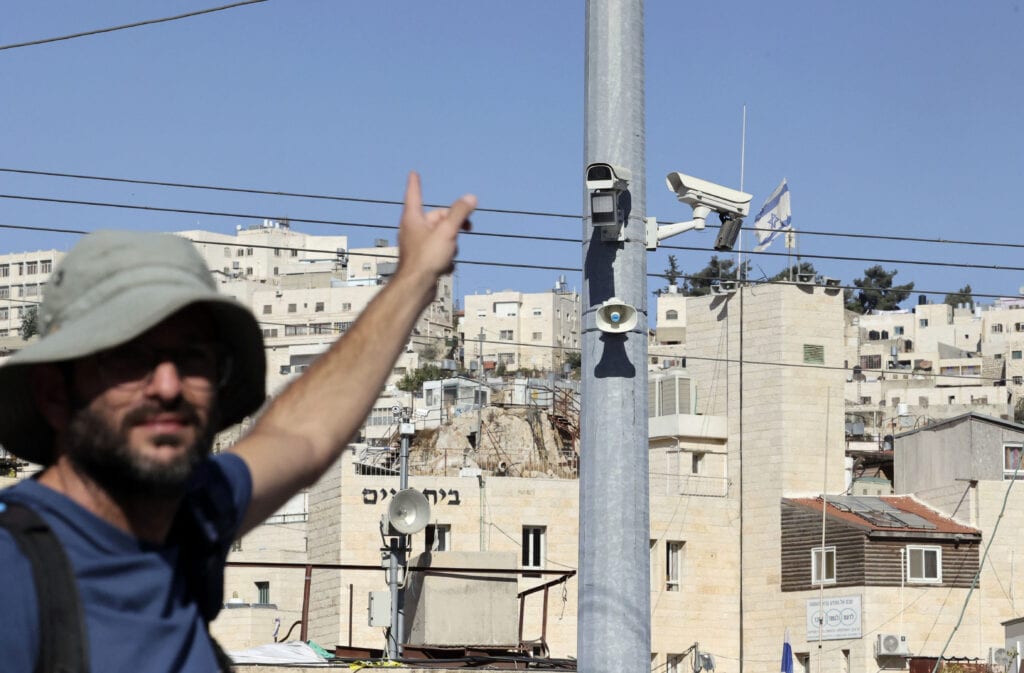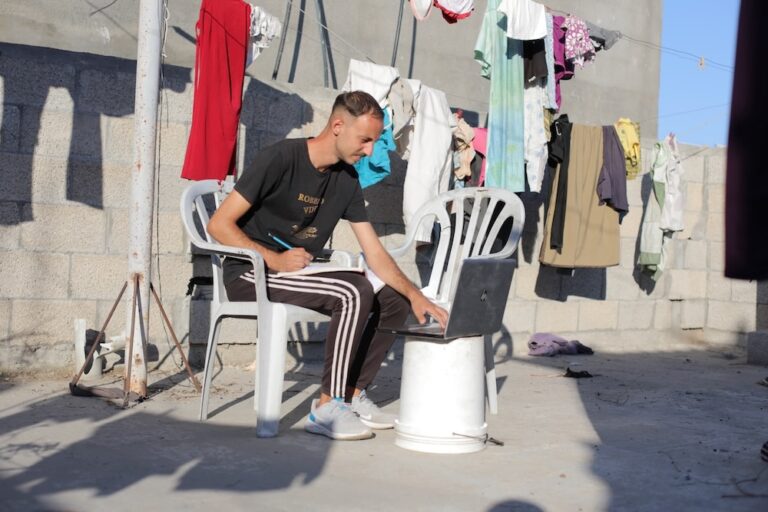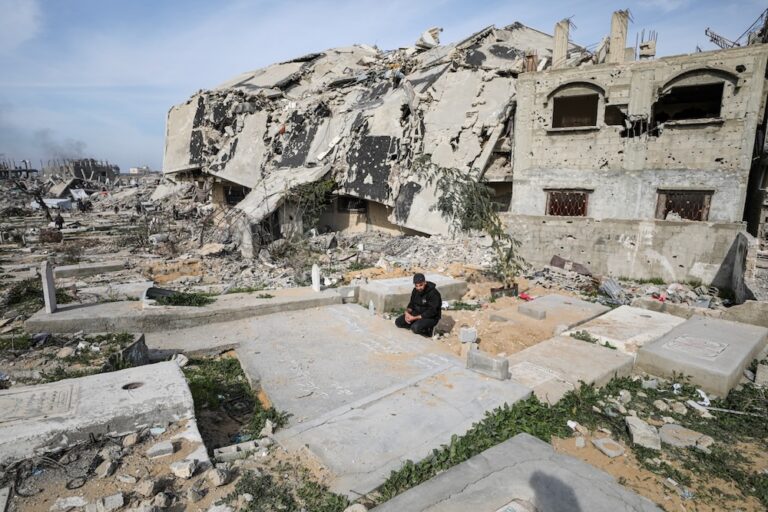An overview of the threats and dangers posed by AI tech on Palestinians and advocates.
Ed. Note: At the time of publishing this piece, we at IFEX are bearing witness to the atrocious escalation of violence in Palestine and Israel. In this worrisome context, we express our firm solidarity with IFEX members MADA, 7amleh and I’Iam, and with our colleagues throughout the region, as the consequences of the conflict spread beyond their borders.
This statement was originally published on 7amleh.org on 22 February 2024.
The Arab Center for the Advancement of Social Media published its new position paper “Impacts of AI Technologies on Palestinian Lives and Narratives”, shedding light on the alarming lack of oversight and regulatory frameworks surrounding AI deployment, emphasising the dire consequences for Palestinians and Palestinian human rights advocates.
The paper, authored by the writer and artist Dr. Ameera Kawash in collaboration with 7amleh, explores the intersection of AI technologies with existing power structures, underscoring their potential to exacerbate inequalities and violate human rights on a global scale. It also offers a comprehensive overview of the specific dangers faced by Palestinians due to the integration of AI into communications, surveillance, and military applications.
The paper effectively applies the principles of ethical and understandable AI, shedding light on the implications of AI technologies on Palestinian human rights in a manner that resonates with wide audiences. It also delves into crucial areas such as content creation, moderation, censorship, and curation, while also addressing the pressing issues of surveillance and automated warfare and weapons.
Additionally, the paper provides comprehensive recommendations to mitigate the urgent threats posed by AI technologies on Palestinian human rights. These include launching awareness campaigns, advocating for transparency in datasets in accordance with the principles of ethical and understandable AI, and developing AI tools to combat harmful narratives. For the complete position paper, you can access it here.



